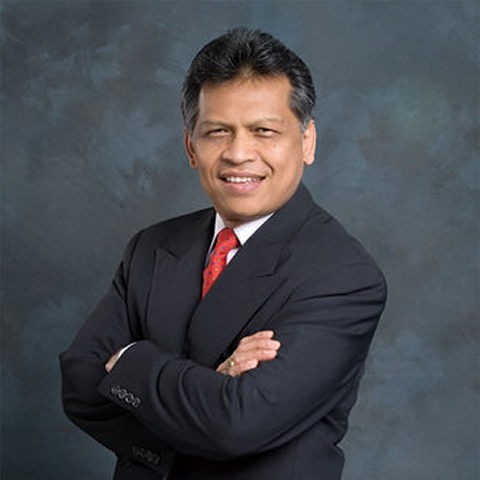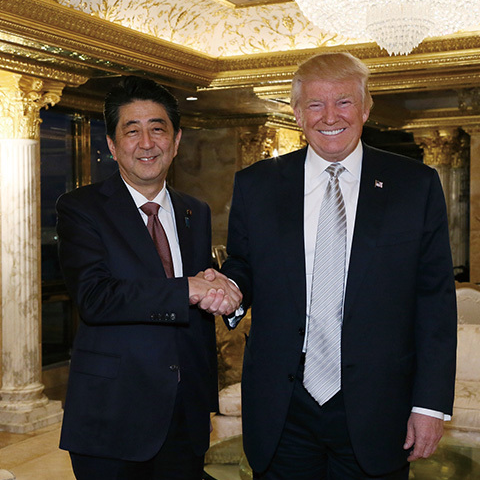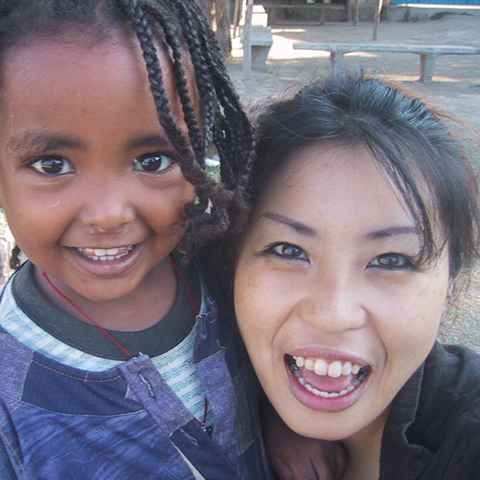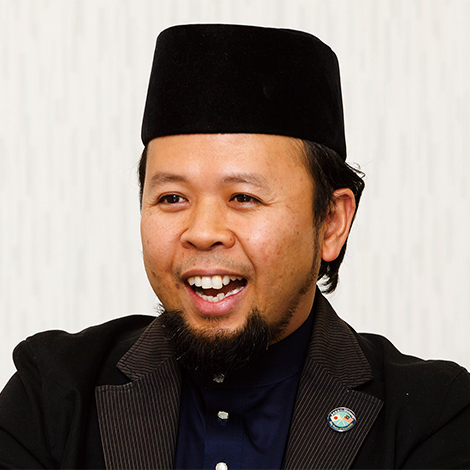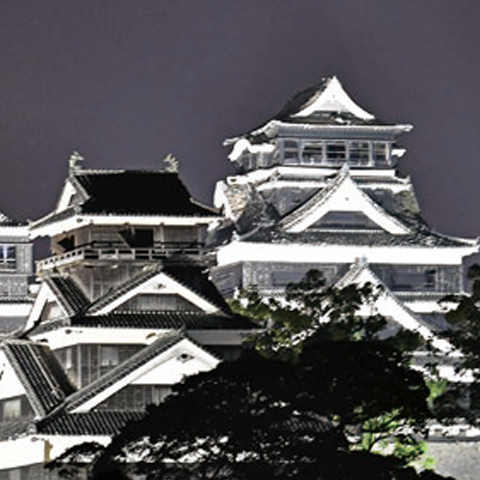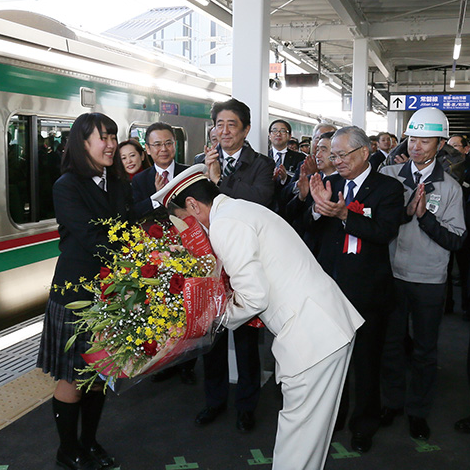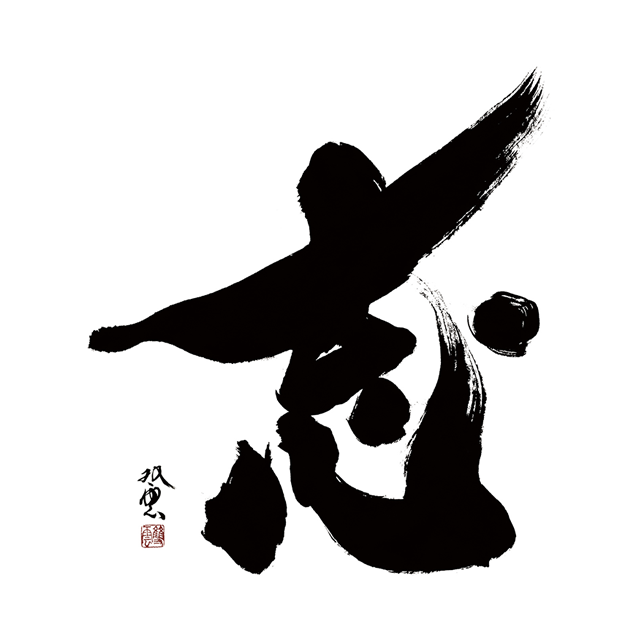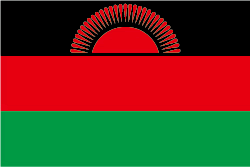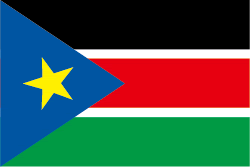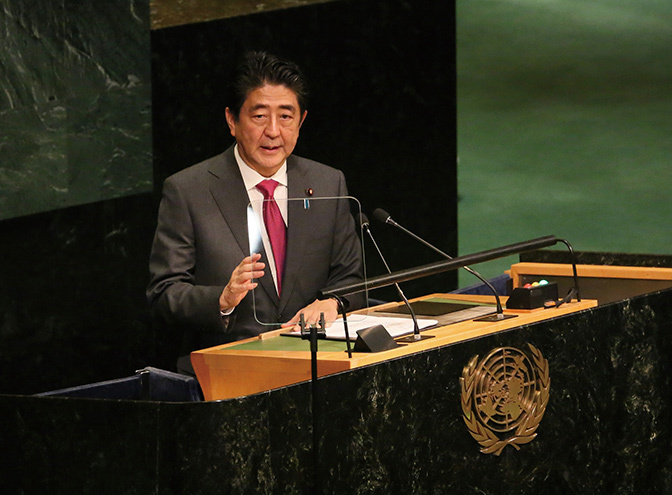North Korea as a threat to peace
North Korea has now manifested itself directly before us as an open threat to peace. The raison d’être of the United Nations is now truly being tested.
North Korea launched SLBMs. Immediately after that it fired three ballistic missiles simultaneously, each traversing 1,000 kilometers to reach Japan’s exclusive economic zone. This year alone, North Korea has launched a total of 21 ballistic missiles. In addition, it claims to have successfully detonated a nuclear warhead in a test on September 9. That nuclear test followed another test conducted this past January. This series of launches of missiles and a detonation of a warhead does change the landscape completely.
We must therefore respond to this in a manner entirely distinct from our responses thus far. We must concentrate our strengths and thwart North Korea’s plans.
It is the United Nations’ turn on the stage. Now is the time for the Security Council to indicate an unmistakable attitude towards this threat of a new dimension.
Leading Security Council discussions
It was only four months ago that President Obama visited Hiroshima, where countless innocent citizens fell victim to the first atomic bomb ever detonated.
It was a day on which we renewed pledges. However much time it may take, we must never, even for the briefest moment, let up in our efforts towards the total elimination of nuclear weapons. Our pledges on that day linked both sides of the Pacific and gained new strength.
Despite this, North Korea is now escalating its provocations. The threat to peace now manifest before us, and the nature of the military provocation North Korea has persisted with, are substantially more serious than before.
And the country carrying this out is a country that abducted a large number of Japanese, including a girl aged 13 at the time. We are demanding that North Korea return them immediately, but they have not agreed upon doing that and deprived them of their peaceful lives and [are] not allowing them to return to their homeland even now.
It is a country that tramples human rights, where no heed whatsoever is paid to restraints on or balances of power. It is a country pushing ahead with a buildup of arms including nuclear weapons and missiles while paying no attention to the plight of its citizens.
The threat to the international community has become increasingly grave and all the more realistic. It demands a new means of addressing it, altogether different from what we applied until yesterday.
This December, Japan will mark the 60th anniversary of its accession to the United Nations. Sixty years ago, what the Japanese who had attained a seat in this distinguished Chamber sought from the depths of their hearts, and thereafter consistently and absolutely unfailingly wished for and advocated for was, single-mindedly, world peace and the elimination of nuclear weapons.
Now, as the world concentrates on whether the United Nations will thwart North Korea’s ambitions or the Security Council will be able to confront North Korea in a united way, Japan, as a Security Council member, will lead the Security Council’s discussions.
Bringing the rule of law to the seas
No matter the issue facing us, or exactly since we are faced with many challenges, Japan, which marks its 60th year since accession, will spare no effort to strengthen the United Nations.
The cumulative total of the assessed contributions to the UN and assessed contributions to peacekeeping operations that Japan has paid in, as a simple tally of the book value of those contributions, easily exceeds 20 billion U.S. dollars. In addition, our track record of development assistance amounts to 334.5 billion U.S. dollars, again as a simple tally of the then book value.
In my view, the United Nations has had three great causes pervading its history. These are the devotion to peace, the pursuit of growth, and the desire for a world free of injustice and unfairness. I believe you will recognize that Japan is a country that has made all-out efforts regarding each of those causes over these 60 years.
Above all, growth serves as the foundation for all. Only when there is growth does peace take root and can injustices be rectified over time.
It is only through a free and open trade and investment environment that Japan was able to grow. This is the very same thing that has conferred the prosperity of the present day on the countries of Asia.
Peace, stability, and security of the seas as well as freedom of navigation and overflight are the basis for the peace and prosperity of the international community.
Should there be disputes, the international community must adhere strictly to the principles that states shall make their claims based on international law, they shall not use force or coercion in trying to drive their claims, and they shall seek to settle disputes by peaceful means.
Let me also say that at the core of the Japanese government I have formed a special team which I lead directly that is working to further the Sustainable Development Goals (SDGs).
The Government of Japan will accelerate the work towards early conclusion of the Paris Agreement on climate change and will carry out without fail its pledge to provide 1.3 trillion yen of assistance for developing countries in 2020. Japan will spare no effort in strengthening the United Nations in the 60 years to come just as it did over the past 60 years.
This is Japan’s UN spirit
Wherever the Japanese engaged in international cooperation go, the nameless people there wake up to their own abilities and realize that nation-building begins from the very place where they themselves are standing. The Japanese witnessing this are moved in ways that become memories lasting their entire lives.
It is a source of quiet pride for me that the relationship between Japan and the United Nations has for the past 60 years brought hearts together in this way in Asia, in Africa, and indeed all around the world. This is Japan’s UN spirit. I pledge not to forget this and to foster it and hand it down to the next generation.
Reform of the Security Council as a matter of urgency
WI will end my address by pointing out the need for fundamental changes in the UN governance structure. Countries in Africa and Latin America have built up a degree of influence they have never had before in global politics and the global economy, and yet they do not have satisfactory representation on the Security Council. Just this single example makes the current state of affairs on the Security Council indefensible to the generation alive now.
At the TICAD VI summit Japan convened recently with the countries of Africa, I heard the leaders call the circumstances by which Africa has no permanent representation on the Security Council a “historical injustice,” to which I nodded deeply in agreement.
If we do not carry out the reform of the Security Council now, it will easily be put off for a decade or two. Will we stand in the position of harming the values of the UN? Or will we wish for a strengthening of the UN? If it is the latter, then it goes without saying that reform of the Security Council is a matter of urgency.
Thank you very much.


























